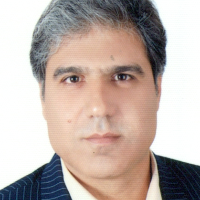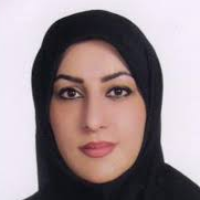Identify the Components and Elements of the Curriculum based on Developing Problem-Solving Skills in order to Provide an Optimal Model for Preschool
Education is a lifelong process. Education in its broadest sense includes all the knowledge and experiences gained from childhood, adolescence, youth and adulthood through any educational factor such as school, home, community and so on. The purpose of education is to develop children in all aspects. Since preschool is a period of gaining and observing important experiences of the child, it is very important in his development. Preschool education is the cornerstone of children's education activities for later levels. As society becomes more complex and diverse, the process of preparing children and adolescents for independent thinkers, productive citizens, and future leaders becomes more difficult and complex. Accordingly, in order to cope with the amazing changes in today's society, people must learn problem-solving skills. Problem solving is a vital skill for living in the present age. In most societies, everyone believes that the emphasis should be on increasing problem-solving skills. The curriculum, as one of the most important parts of the educational system, has an effective role in providing quality education in childhood. Since there is no comprehensive and specific educational program in the country to develop problem-solving skills of preschool children; therefore, the aim of this study was to identify the components and elements of the curriculum based on developing problem solving skills and provide an optimal model for preschool. In this study, two questions were raised, which are 1. What are the components of problem solving skills in preschool? 2. What characteristics should the elements of the preschool curriculum have based on the components of problem-solving skills?
The research approach was qualitative and the research method used was the Grounded theory method. Grounded theory is a systematic methodology that has been largely, but not exclusively, applied to qualitative research conducted by social scientists. The methodology involves the construction of hypotheses and theories through the collecting and analysis of data. A study based on grounded theory is likely to begin with a question, or even just with the collection of qualitative data. As researchers review the data collected, ideas or concepts become apparent to the researchers. These ideas/concepts are said to "emerge" from the data. The researchers tag those ideas/concepts with codes that succinctly summarize the ideas/concepts. As more data are collected, and re-reviewed, codes can be grouped into higher-level concepts, and then into categories. These categories may become the basis of a hypothesis or a new theory.This research was designed and implemented in two stages. The first stage led to the discovery of the components of problem-solving skills, and in the second stage, the elements of the curriculum based on the development of problem-solving skills were identified and the model of the problem-solving curriculum using nine elements of Klein for preschool was designed and presented. The research population consisted of three groups of specialists in various fields of educational sciences and psychology, including curriculum planners, educational psychologists and preschool teachers. Due to the need for interviews in the qualitative section, the three groups (curriculum planners, educational psychologists and preschool teachers) were sampled separately and in-depth semi-structured interviews were conducted with these specialists. For sampling, the snowball type of purposive sampling method was used, so that in the first step, the interview began separately with one of the curriculum planners, educational psychologists and preschool teachers who have criteria based on expertise and experience in the field of the present study. The interviews began separately and the interviews continued until there was a theoretical saturation and no new information was obtained. The interviews continued until there was a theoretical saturation and no new information was obtained. Interviews were continued with two other people in each group to ensure theoretical data saturation. In total, 36 people were interviewed in three specialists groups. In the second step, the data obtained from the interviews were collected by taking notes, and in the third step, the text and content of the interviews were analyzed. Data analysis consisted of three stages of text coding(open coding, axial coding, selective coding).
The findings of this research in the first stage were the discovery of 10 main components of problem solving skills, which are: development of self-awareness, problem recognition, organizing skills, analysis, evaluation, selection, individual differences, development of, development of thinking skills, development of social skills, development of life skills such as anger and stress management, reducing fear and anxiety and development of self-confidence. In the second stage, the nine elements of the Francis Klein curriculum based on problem-solving skills were developed, based on the components extracted from interviews and specialists opinions, and the optimal model of preschool was presented. The first element identified was the goal, which was classified into three areas: cognitive, attitudinal, and functional. Achieving the all-round development of children is one of the important goals. The preschool curriculum should be regular, flexible, and varied. Content is the next element that should be selected based on criteria such as activity-oriented, logical and explicit, and organized in a way that helps deep understanding, learner motivation and knowledge building in the learner. The third element is educational materials and resources, which are very diverse and as tools and tools that facilitate the teaching-learning process, should be compatible with problem-solving skills and be usable and attractive to preschool students. The fourth element is learning activities that must be designed according to principles to make the learner think, reflect, actively learn and solve problems. In the case of the fifth element, teaching methods, they must have features such as interactivity, practicality, and exploratory. The sixth element is grouping, which should have characteristics such as building common and purposeful knowledge, interaction and negotiation and coordination with the group, flexibility in groups, spirit of cooperation, preferably working in small and two-sided groups, respect for all aspects of personality, be critical, division of tasks, responsibility, specifying tasks in the group, paying attention to individual differences. The seventh element, i.e. evaluation, must be a process and continuous, and various, original and real strategies must be used in evaluation. Space is the eighth element. Appropriate mental and physical spaces create a learning environment to develop problem-solving skills. Regarding the last element, i.e. time, flexibility, coordination, complementarity and time management are important features. The identification of all these elements eventually led to the design of an optimal curriculum model to develop problem-solving skills in preschool children
- حق عضویت دریافتی صرف حمایت از نشریات عضو و نگهداری، تکمیل و توسعه مگیران میشود.
- پرداخت حق اشتراک و دانلود مقالات اجازه بازنشر آن در سایر رسانههای چاپی و دیجیتال را به کاربر نمیدهد.



